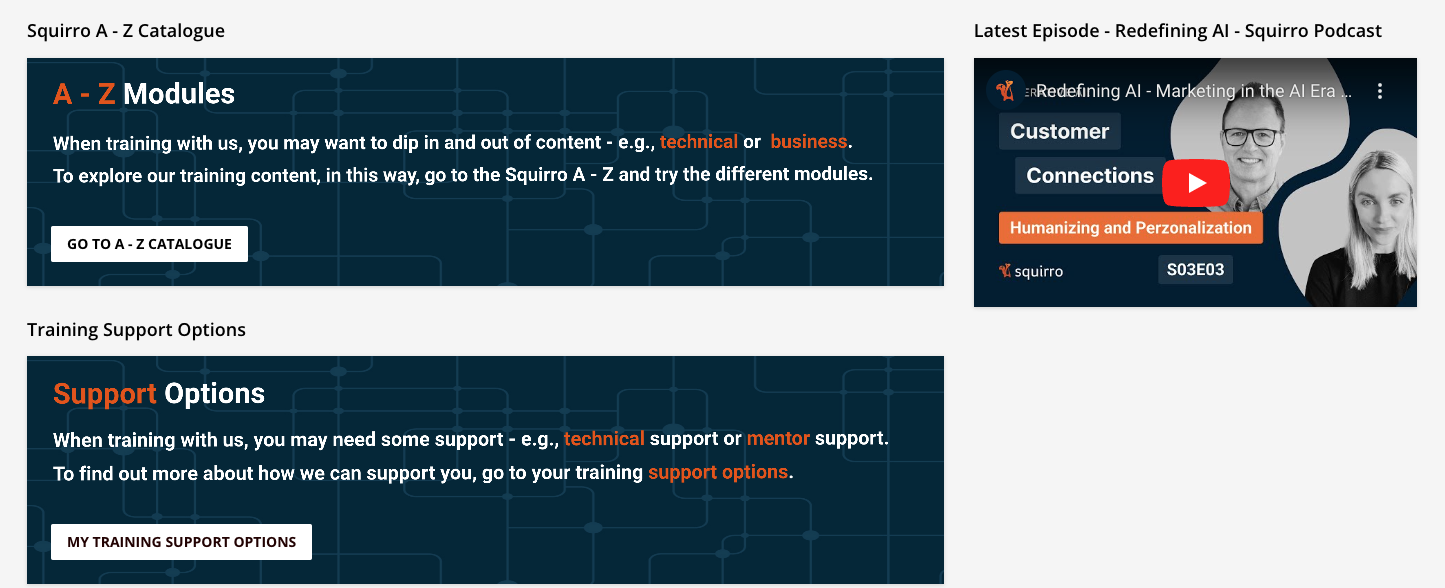Zürich, Switzerland, June 6, 2024
In this interview, Simone Abbiati, Head of Training & Education at Squirro, explores how the company's educational platform, Squirro Academy, is pioneering the GenAI revolution for enterprises, empowering learners to thrive in this fast-moving era of innovation.
Meet Simone:
What inspired you to join Squirro, and what excites you the most about your new role?
When I completed my Ph.D. in Computational Linguistics, I knew I wanted to enter the AI industry, particularly in a start-up environment where I could engage with various departments, from software engineering to marketing and sales.
My goal was to bridge the gap between customer needs and the implementation of specific pipelines and models into industrial processes, leveraging my two passions: Computer Science and Communication. Growing up, I enjoyed disassembling gaming stations and playing with software, but later studied linguistics and semiotics. At the time, I didn’t realize these two worlds could coexist.
Here at Squirro, I love that I can be very creative and produce content anticipating future trends in technology and also explore educational perspectives to best devise the content I produce, drawing from Bloom’s taxonomy to Piaget's theory of cognitive development.
Can you share a bit about your background and how it has prepared you for this position?
Certainly! Coming from academia, where I developed a profound appreciation for knowledge for its intrinsic value, I am now also beginning to love knowledge for its practical applications. Keeping abreast of the latest research papers and cutting-edge innovations is a passion of mine. I adore engaging in discussions with software engineers about the potential integration of state-of-the-art algorithms into our pipelines, including strategies that have been published just days before.
These conversations, aside from being intellectually stimulating, provide insights into the needs of our community. In a world where Artificial Intelligence permeates nearly every aspect of our lives, being part of a collective understanding is, simply put, gratifying. My doctoral journey gave me the opportunity to travel extensively and connect diverse perspectives on Semiotics and Artificial Intelligence.
It commenced in Bergamo, a picturesque city in northern Italy, where my department was nestled atop a hill crowned by the Venetian Walls enclosing the historic center. During my time there, I developed a disciplined approach to study and delved into a wide spectrum of disciplines, spanning from philosophy to computer science to linguistics. Then, my academic journey led me to Cambridge, where I found myself immersed in the realm of Ethical Artificial Intelligence.
I had the privilege of engaging with captivating institutions such as the Leverhulme Centre for the Future of Intelligence or the Centre for Digital Humanities. Interacting with brilliant minds from across the globe exposed me to thought-provoking perspectives on the imperative of fostering trustworthy and responsible artificial intelligence.
Everything there seemed so casual and familiar, but even a leisurely riverside picnic could evolve into a discourse on the ethical dilemmas of integrating machine learning models into military technologies. I loved it!
The final phase of my doctoral studies brought me to Stanford, coinciding with the launch of OpenAI’s ChatGPT. I distinctly recall the buzz surrounding this technological breakthrough, particularly because it originated from the very departments where I was attending my courses there.
You could enter a random café in Palo Alto and hear venture capitalists speculating about the possibility of investing millions in the field, and then have a beer with software engineers from various corners of the globe discussing the implications of rapid AI advancements. It was a hectic period, but those days and nights I spent coding there revolutionized my understanding and perceptions of the field.

Can you explain the purpose of the Squirro Academy and what unique benefits it brings to our community?
The Squirro Academy is the place to unleash your passion and bridge any sector-related gaps you may encounter. The Artificial Intelligence environment is incredibly diverse, encompassing profiles such as data scientists, software engineers, data preparers, and C-level executives who rely on niche technologies to make informed decisions: the breadth of competencies in this field is vast and requires multifaceted approaches.
What sets the Squirro Academy apart is our commitment to stay at the forefront of technology while also making complex concepts accessible to all.
By connecting theoretical knowledge to real-world scenarios, we leverage the experiences of our trainees. Just as Piaget observed how infants learn through sensory inputs and motor skills in the sensorimotor stage of cognitive development, we too connect Artificial Intelligence concepts with everyday objects to stimulate different senses. This approach helps learners internalize and apply concepts creatively.
The wealth of material available at the Academy is so vast that it could fill more than a book! Currently, we're relaunching the Academy with new courses tailored to specific sectors.
These courses demonstrate how Generative AI and Squirro solutions could be best used, including the possible implementation of sector-related Pretrained Language Models. These models could excel in medical, financial, or marketing information extraction and reformulation. And also, courses on SquirroGPT, which enables users to interact with their data—whether it's graphs, texts, or audio—in a conversational manner.
Can you explain what your first course offered by the Squirro Academy is about, and give us a sneak peek into what's coming in the next few months?
The first course delves into the possible applications of Large Language Models, the technology underlying ChatGPT, Gemini, and many other tools, in the enterprise world. Language models are machine learning models trained to comprehend and generate human-readable, credible text.
Their primary function is to predict the probability of a sequence of words occurring together based on patterns learned from a large corpus of text data during training. Once trained, they can be used to extract information from various types of textual data and to reformulate text and excerpts in a theoretically endless variety of forms. Sounds pretty technical, doesn't it? But it's actually simpler than you might think.
Imagine you have a young parrot named Polly, and you want to teach her to say various phrases. To teach Polly to speak, you repeatedly expose her to the phrases you want her to learn. For example, you might say, "Good morning!" every day when you uncover her cage, or "Pretty bird!" when you give her a treat. Over time, Polly starts to mimic these phrases. Similarly, a Large Language Model is trained by exposing it to vast amounts of text data from the internet, books, articles, and other written materials. It learns patterns in language, syntax, and common phrases by processing and analyzing this data. Just as Polly learns best through repetition and positive reinforcement, when she correctly mimics a phrase, you might give her a treat or praise her, reinforcing the behavior.
This is akin to the concept of fine-tuning in Language Models: the model undergoes multiple passes over the training data, where specific examples of what you want it to learn are shown, allowing it to adjust its internal parameters to minimize errors in predicting the next word or phrase, gradually improving its performance for specific tasks and enterprise sectors.
As for what’s coming next, the following courses will address the importance of data governance and regulations. While the technical possibilities that Generative AI offers are tremendous, it is crucial for enterprises, especially when handling large datasets of sensitive data ranging from healthcare to legal information, to be extremely confident that they are not inadvertently leaking data and that they are compliant with new regulations, from Biden’s 'Safe, Secure, and Trustworthy Development and Use of Artificial Intelligence' issued on October 30th of last year to the EU Artificial Intelligence Act.
Stay tuned!
About Squirro
Who are we? Recognized by Gartner as a visionary company, Squirro stands at the forefront as an enterprise-ready generative AI solution for search, insights, and automation.
Our clientele includes prestigious organizations such as: the European Central Bank, the Bank of England, Henkel, Mubadala, and over 30 industry leaders.







